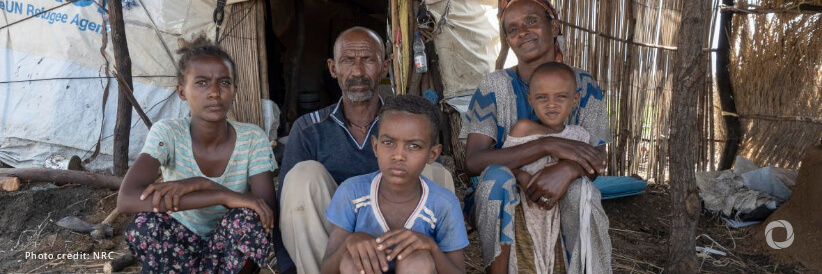In the Americas, Haiti and Venezuela are the countries at highest risk of worsening humanitarian conditions over the year ahead, according to a recent report by the International Rescue Committee (IRC), but there are other emergencies in the region to keep an eye on, they warned.
In the 2023 Emergency Watchlist, the IRC pointed to chronic violence, climate change, and economic turmoil as the main drivers of humanitarian needs worldwide. In the case of Haiti and Venezuela, at least 5.2 million and 7 million people live in need of humanitarian aid respectively, and the IRC identified three particular risks linked to these drivers:
- Hunger is tied to poverty. In Haiti, where food price inflation is around 30%, 4 in 10 Haitians (or 4.7 million) are facing crisis or worse (IPC 3+) levels of food insecurity, meaning they have to skip meals or make other impossible decisions to survive. In Venezuela, despite a slight economic recovery in 2022 after a 10% GDP increase, food price inflation still was 131% by the end of July, leading to at least 12.3 million Venezuelans being food insecure.
- The conflict is caused by non-state armed actors. With the capital, Port-au-Prince, under the control of multiple gangs, Haitians face deepening threats to their safety as rates of kidnappings, rape, and indiscriminate killings are all increasing, leading to more than one thousand fatalities from January to July 2022. Urban violence and insecurity have been appointed as the main causes that have led over 155,000 Haitians to displace within the country.
- Higher risks to public health in relation to climate change and weakened systems. Recent climate shocks, ongoing infrastructure damage after the latest earthquake, as well as reduced access to drinking water and sanitation services, and major accumulation of waste derived from insecurity, leave Haitians with low coping capacity as they experience the first cholera outbreak in three years. Suspected cholera cases in Haiti went from 1,700 in October 2022 to 22,563 in early January 2023, resulting in 1,561 confirmed cases and 457 deaths to date. In Venezuela, preventable and treatable diseases pose a threat, especially since public health services are severely strained and medicines are inaccessible to 9.3 million people.
Julio Rank Wright, Regional Vice President for Latin America at the International Rescue Committee, said:
“The crises in Haiti and Venezuela are protracted challenges that are shaking the whole region but, as conflict escalates around the world, competing priorities are draining the attention they get. These countries, however, are not the only places facing risks in the near future: many people in northern Central America and Mexico encounter threats to their safety every day and struggle to cover their most basic needs. As crises deepen, challenges to deliver aid arise. There are gaps in the support and resources allocated by the international community, with Humanitarian Response Plans historically being underfunded or nonexistent for certain countries. We call on world leaders to robustly invest in humanitarian work in Latin America that prioritizes collaboration leading to concrete funding commitments and a harmonized response.”
In addition to Haiti and Venezuela, during the webinar the IRC drew attention to other areas in the region:
- Northern Central America, where drivers of humanitarian crises have been heavily felt in recent years: climate change has forced almost 1.3 million people to displace internally since 2020 and it’s still the direct cause of the economic decline and food insecurity, leading to 15 million people experiencing hunger in 2021.
- Mexico, a country dealing with internal displacement, which continues supporting asylum seekers expelled from the U.S. while receiving almost 250,000 asylum requests in the last two years.

